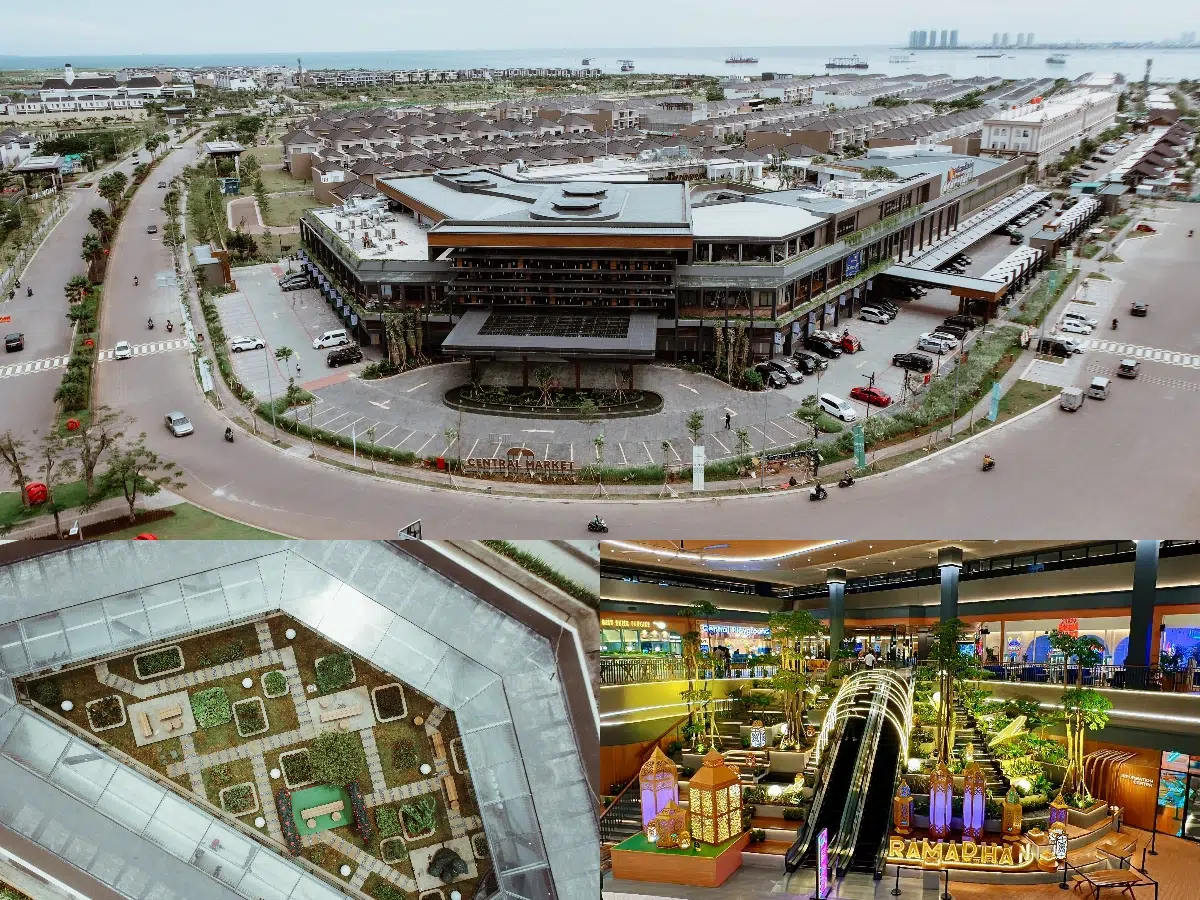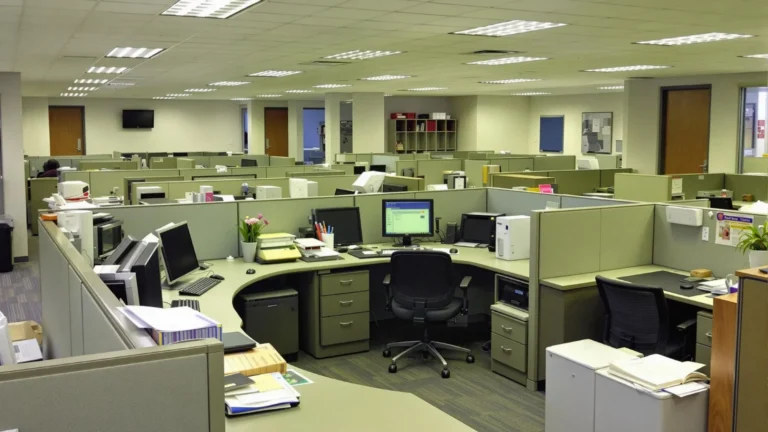6 green real estate projects reshaping Asia’s future
With governments around Asia rolling out policies to boost sustainable real estate, developers are being incentivised to push a green agenda into daring new realms

The Bosco Verticale turned 10 this year. One of the most feted buildings of recent times, Stefano Boeri’s masterpiece is a verdant sight to behold at the core of Milan’s concrete jungle.
The 116-metre skyscrapers, which the architect described as “a house for trees inhabited by humans,” gained global recognition for integrating more than 20,000 trees, shrubs, and plants. The “world’s first vertical forest” provides numerous environmental benefits such as improving air quality, reducing urban heat island effect, and fostering biodiversity.
A few years ago, Boeri repeated this feat with the Nanjing Green Towers in China. The project, which includes two 200- and 108-metre towers, continues the concept by incorporating approximately 1,100 trees and 2,500 cascading plants and shrubs designed to absorb 25 tonnes of CO2 annually and produce about 60 kilogrammes of oxygen daily.
Still, the project was far from the first of its kind in Asia. The Oasia Hotel Downtown in Singapore, completed in 2016, exemplifies earlier efforts to integrate extensive greenery into high-rise structures. Designed by WOHA Architects, the hotel features a living façade covered in more than 20 species of creepers and vines, providing natural insulation and promoting biodiversity.
Similarly, Tree House by City Developments Limited, also in Singapore and completed in 2013, held the Guinness World Record for the largest vertical garden. Its expansive 24,638-square-foot green wall helps to reduce the building’s carbon footprint by filtering pollutants and minimising heat absorption.
While these projects are visually stunning and environmentally beneficial, they represent just a fraction of the ongoing efforts towards sustainable real estate in the region.
According to Kristin Thorsteins, chairperson of the independent judging panel for the PropertyGuru Asia Property Awards, there is significant momentum throughout Asia. “Real estate markets are increasingly recognising the importance of integrating green practices, not just for compliance, but to meet the rising demand for sustainable living,” she says.
But Thorsteins also emphasises the need for more stringent regulations to propel sustainability efforts, similar to those in the EU and UK. “Stronger policies could drive a larger-scale adoption of green initiatives across the sector,” she adds. “If you look to other regions at the forefront of sustainability, punitive government legislations propelled integration of carbon-reducing initiatives in construction.”
Indeed, governments across Asia are rolling out policies to boost sustainable real estate. Singapore’s Green Building Masterplan aims for 80 percent of buildings to be green by 2030. In China, the Green Building Action Plan requires 50 percent of new buildings to be certified green by 2025.
Several Asian countries have also set ambitious net-zero targets for the real estate sector. Japan aims for net-zero emissions by 2050, with significant investments in green technology and infrastructure. South Korea plans to achieve carbon neutrality by 2050, focusing on green building standards and renewable energy integration. Furthermore, Hong Kong’s Climate Action Plan 2050 targets a 50 percent reduction in carbon emissions by 2035 and aims for net zero by 2050.
Despite the growing momentum, integrating sustainability into real estate development presents several challenges. The initial capital outlay for sustainable technologies and practices can be substantial, and the payback period, though often less than four years, can still be a barrier for some developers. Additionally, there is a need for a cultural shift within organisations to prioritise and champion sustainable practices.

“Investing in sustainable technologies not only reduces operational costs but also enhances the overall value and marketability of real estate projects,” says Charles Blocker, founder of real estate advisory firm IC Partners Limited. “However, developers must be committed to changing behaviour patterns and educating their teams to fully realise these benefits.”
He adds that emerging technologies will also be crucial in shaping this future. Innovations in energy management, waste reduction, and building materials are set to transform how buildings are designed, constructed, and operated.
“Technology is the key to unlocking the full potential of sustainable real estate,” says Blocker. “From AI-driven energy management systems to sustainable building materials, these innovations will drive efficiency and sustainability in the sector.
The increasing demand from investors for green-certified buildings is another positive sign. As Blocker points out, “Green projects are becoming essential for securing financing and attracting investors. This trend will continue to grow, making sustainability a core component of real estate investment strategies.
Moreover, sustainability is becoming a significant factor in attracting and retaining talent. Companies with strong environmental credentials are more appealing to the new generation of workers who prioritise sustainability, according to Thorsteins.
“The values of the owners and the brand’s commitment to green practices make it easier to recruit and retain employees,” she says. “This alignment between sustainability and corporate culture is vital for long-term success.”
This focus on sustainability enhances corporate culture while underscoring the broader need for systemic changes in the industry. Buildings like Bosco Verticale might capture the imagination and highlight the potential of integrating nature into urban living, but the widespread adoption of sustainable practices across the real estate industry relies more on robust policy initiatives and technological advancements. These elements, though less eye-catching, are essential in driving genuine industry-wide sustainability.
As Asia continues to embrace green policies and innovative technologies, the real estate sector can look forward to a future where environmental responsibility is the norm, not the exception. The blend of visionary projects and pragmatic strategies will ultimately shape a more sustainable and resilient urban landscape.
With that in mind, we round up five of the most sustainable developments to emerge of late, according to the PropertyGuru Asia Property Awards judging panel.
Allevia Mont’Kiara by UEM Sunrise Berhad
Cutting-edge green design and a prime location make this latest luxury condo from UEM Sunrise Bhd an appealing proposition for eco-discerning homeowners. Situated in Kuala Lumpur’s sought-after Mont Kiara neighbourhood, the affluent residential area is home to upscale shopping malls, restaurants, and recreational facilities—plus an abundance of green space.
At the 294-unit Allevia Mont’Kiara, expansive terraces and landscaped gardens continue the eco-friendly environment. A standout design element is the Zen enclave, which provides a tranquil space for relaxation and reflection. Meanwhile, the use of rainwater harvesting systems, LED lighting, and EV charging bays underscores the developer’s sustainability chops, bagging it a Best Green High-Rise Development accolade at the latest Asia Awards (Malaysia) in partnership with iProperty.
Elysian by Gamuda Land
Another luxury high-rise condo showcasing innovative ecodesign elements, Elysian in Ho Chi Minh City’s emerging Thu Duc district exemplifies the balance between nature and urban living. Boasting a biophilic concept, the 21-storey tower prioritises indigenous plant species and multi-level greenery, creating a lush, supportive ecosystem that requires low maintenance.
A highlight of the 1,406 units is the “Lanai” spaces with movable, sun-shading louvre doors, allowing residents to enjoy panoramic views or maintain shade, while spacious balconies, large windows, and ample ventilation promote natural light and airflow. Unique common areas such as the Pocket Sky Gardens and Sky Gardens serve as natural thermal insulation and enhance the aesthetics.
The inclusion of low-emission HVAC systems, LED lighting, rainwater harvesting, and extensive water features, including a planned water surface area of up to 1,190 square metres, encouraged the Vietnam Property Awards judging panel to award Elysian Best Eco-Friendly Condo Development in 2023.
The LakeGarden Residences by Wing Tai Asia
The phrase urban oasis is undoubtedly overused in real estate marketing. But in the case of The LakeGarden Residences, it is hard to argue with the claim that this is indeed “an escape from the hustle-bustle”.
Set within Singapore’s Jurong Lake Gardens district, the 306-unit residential project features landscaped gardens, recreational areas, and state-of-the-art amenities designed to promote wellness and community interaction. And all within moments of major transportation hubs, providing excellent connectivity to the city centre and other parts of the island.
The use of energy-efficient systems, sustainable materials, and extensive greenery throughout the development underscores Wing Tai Asia’s environmental commitment, earning it Best Green Development at the 2023 PropertyGuru Asia Property Awards (Singapore).
Other operational design elements include rainwater harvesting, low-flow plumbing fixtures, and an extensive recycling and waste management system, ensuring that sustainability is integrated into every aspect of the living experience.
Central Market PIK by Agung Sedayu Group and Salim Group, curated by Amantara
A pioneering green retail space in Jakarta, the 17,195-squaremetre development combines contemporary aesthetics and environmental stewardship. The project’s sustainable design is highlighted by the use of eco-friendly materials such as natural stones, reclaimed wood, and plastic-wood composite, which helpfully add to its modern-tropical vibe. Central Market PIK also integrates guest-friendly eco-features, including an indoor “Edible Garden”, rooftop gardens, and vertical green spaces.
At the nuts-and-bolts level, the project incorporates rainwater harvesting, water-efficient irrigation, low-flow plumbing fixtures, and a state-of-the-art recycling and waste management system. These elements, combined with a natural air-cooling system, and renewable energy solutions have already earned Central Market PIK a prestigious EDGE Advanced Preliminary Green Building Certificate and a Best Green Development (Asia) trophy at the 2023 PropertyGuru Asia Property Awards Grand Final, beating competition from 13 regional markets.
The Fullerton Ocean Park Hotel Hong Kong by Parkland (Hong Kong) Limited
Sustainability is at the core of The Fullerton Ocean Park Hotel Hong Kong, earning it the WELL v2 Precertification— the first hotel in Hong Kong and Mainland China to achieve this accolade. Designed by Aedas, the resort features two towers that blend with the natural landscape, fostering a seamless indoor-outdoor connection. The hotel’s multilayered podium with terraces and lush landscaping descends toward the sea and caught the eye of the PropertyGuru Asia Property Awards judging panel, which awarded it Best Green Development (Hong Kong and Macau) in 2023.
Eco-friendly features include rainwater harvesting, energyefficient systems, and green spaces like vertical gardens and green roofs. The hotel offers 425 ocean-view rooms in 13 styles, all overlooking the South China Sea. Meanwhile, guest amenities include a 60-metre infinity pool, a luxury spa, a fitness gym, and dedicated areas for children.
The original version of this article appeared in PropertyGuru Property Report Magazine Issue No. 185 on issuu and Magzter. Write to our editors at [email protected].
Recommended
ARES Whitepaper Volume 4: Powering communities – The catalysts of urban evolution
Fresh perspectives on sustainability, lifestyle, and design shaping the future of real estate
ARES White Paper Volume 3: The era of adaptive reinvention
Pioneering sustainable and innovative practices in urban development
ARES White Paper Volume 2: Unravelling the power of data revolution in real estate
Insights on proptech, smart cities, and sustainable development
ARES Digital White Paper Volume 1: The fundamentals of responsible building
Green and climate heroes join forces to discuss how Asia Pacific can weather the current environmental crises and the looming effects of climate change












